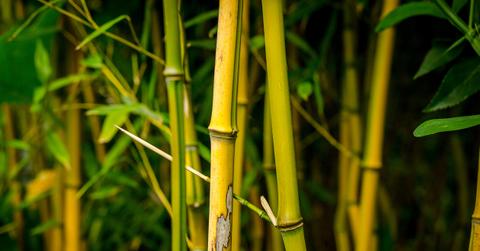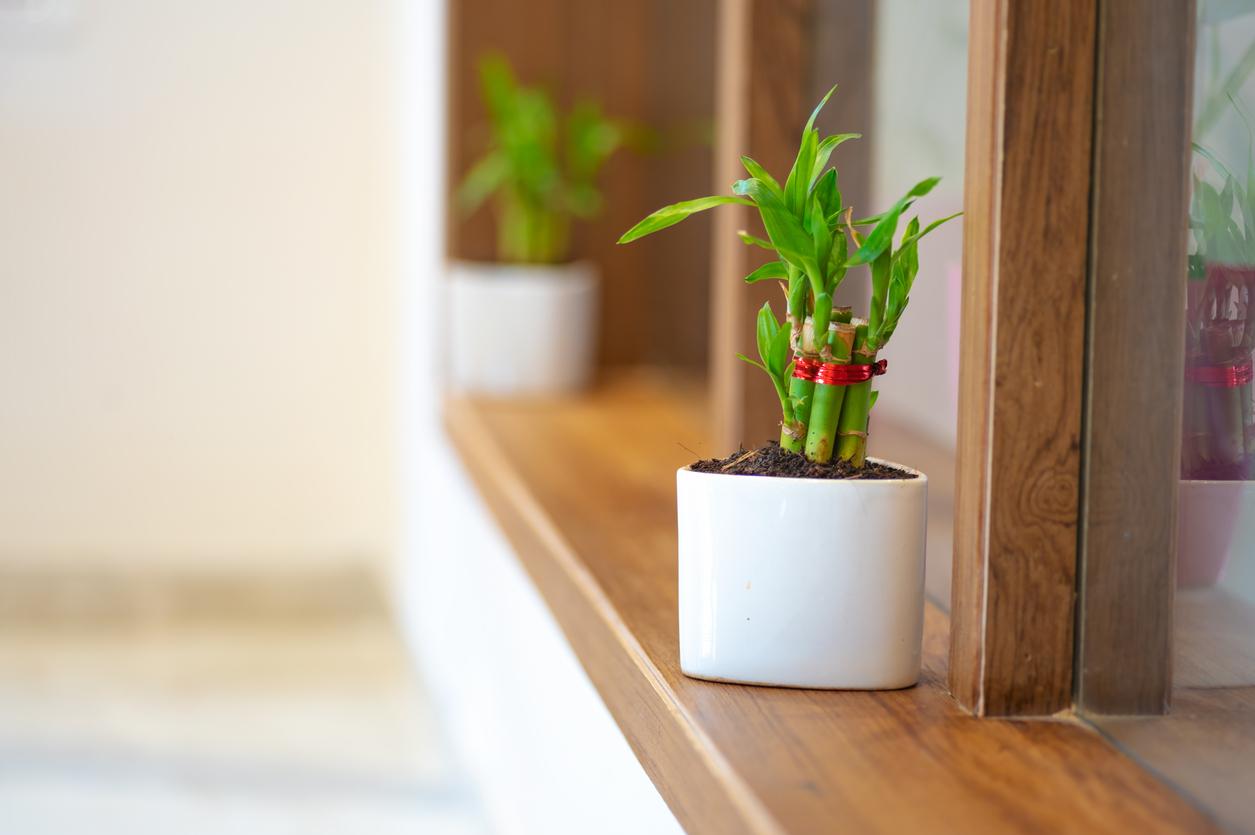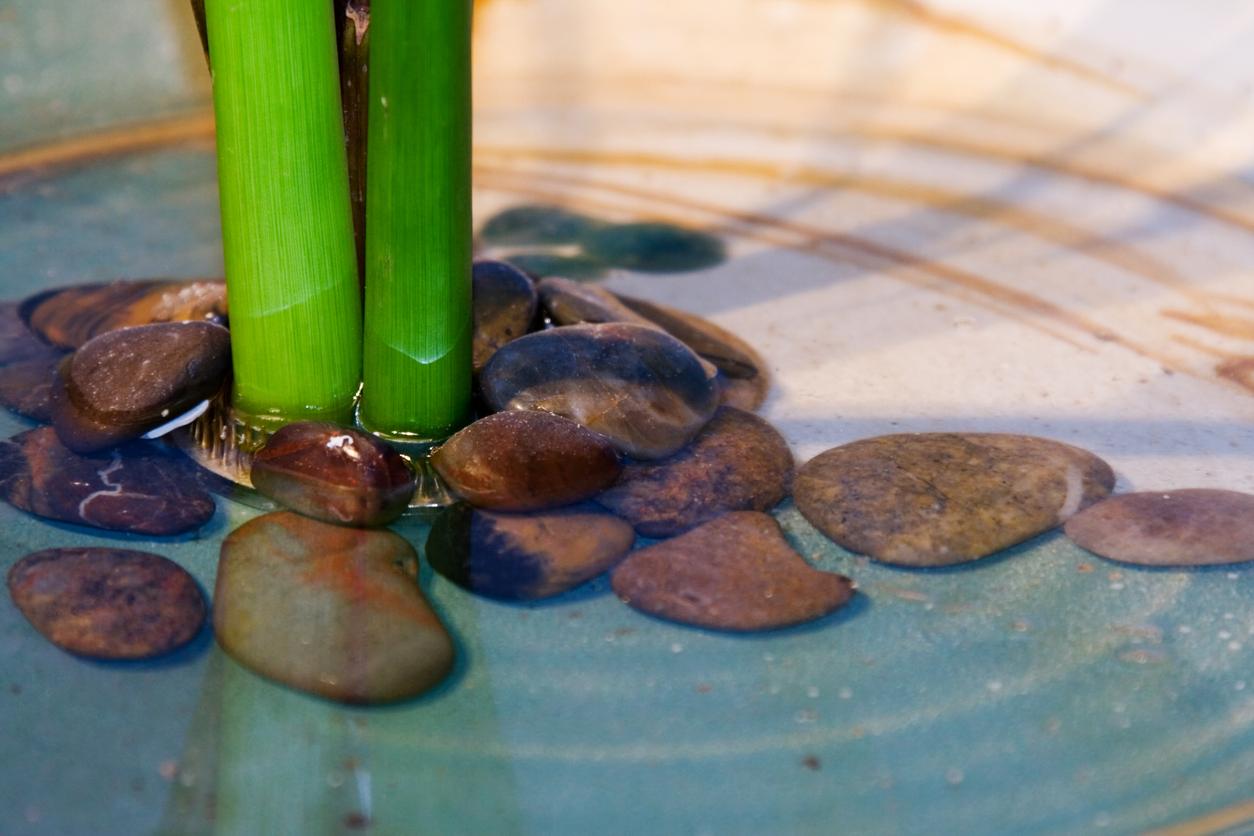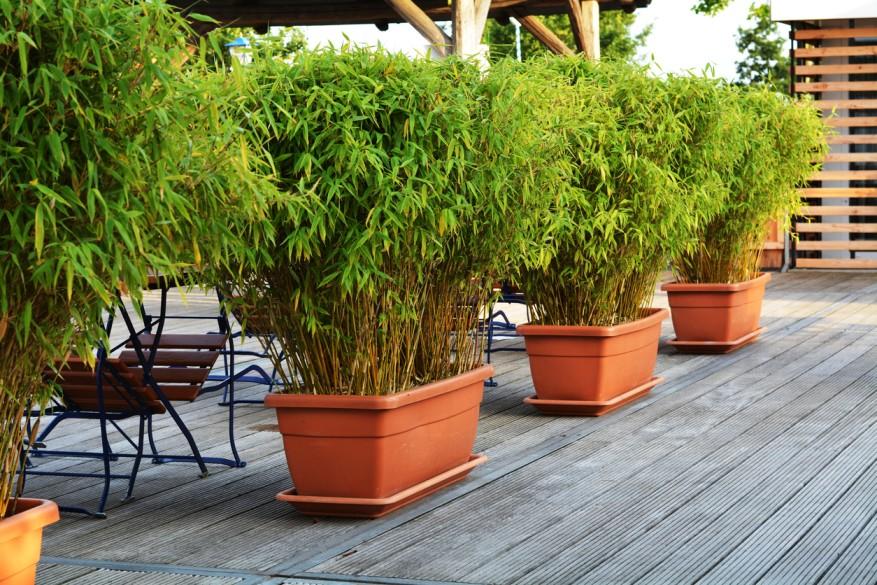Read This Helpful Information if Your Bamboo Houseplant Is Turning Yellow
As it turns out, bamboo plants have the capacity to become stressed if they don't receive enough attention.
Published June 7 2024, 9:48 a.m. ET

Some houseplants elevate our living spaces, others provide utility and cleanse our homes. Many are symbolic of our unique personalities, and all of them are precious and part of the family.
If your bamboo houseplant is situated in a darker area of the home, you may notice parts of the plant turning yellow and understandably become concerned.
As plant care aficionados, we're here to support you and your beloved bamboo. Keep reading to learn insight into why your bamboo may be changing color and how to remedy the situation and return your bamboo to its proper glory.

Why is my bamboo turning yellow?
Indoor and outdoor bamboo plants may suffer from stress if not properly cared for. Lucky bamboo is a plant that requires sunlight to thrive, and per Better Homes & Gardens, if your bamboo houseplant lacks requisite exposure to the sun, it may start to turn yellow and beg for your attention to be placed elsewhere.
Your bamboo plant is fairly hardy, but that doesn't mean it is immune to any needs. Though generally unfussy, there may be some things you're unintentionally doing that can sabotage the health of your bamboo and thus turn it yellow.
As Better Homes & Gardens explains, oversaturated soil may rot the roots and turn the bamboo yellow. Algae can grow and sap the nutrients from the soil, leaving the plant lacking what it needs to stay healthy.
Even if you're sure you're not overwatering the plant, the presence of chlorine and fluoride in your tap water may discolor your plant, while salt may brown the edges of the plant and dehydrate it.

"Yellowing leaves could also be a sign of aging in bamboo plants," Homes & Gardens Garden Editor Rachel Crow tells the publication.
While exposure to the sun is critically important, too much of it can likewise dry out the plant and cause it to turn yellow. Per The Spruce, if excessive sun exposure doesn't seem to be the culprit, perhaps exposure to sudden changes in temperature is causing your bamboo to turn yellow.
Is your bamboo near a vent or window that is frequently opened and thus susceptible to drafts or sudden drops and rises in temperature? Strategic placement away from these areas may be beneficial, depending on the season.
Additionally, per The Spruce, the bamboo plant may have overgrown its potted home and, confined to a space too small to contain its yearning for growth, turns yellow.

Per MasterClass, the yellowed leaves of your bamboo may also indicate an infestation of insects. Spider mites and aphidsmay be the offenders compromising the integrity of the plant.
To ensure the upkeep and maintenance of your bamboo, MasterClass recommends ideas like pruning the yellowed leaves or stem, refreshing the water (if your lucky bamboo arrangement includes water), and restricting your use of fertilizer on the plant, which may also be a culprit of the yellowing of your bamboo.
Ultimately, whether you're an amateur indoor plant parent or cultivating an expansive outdoor bamboo garden, it's important to note that indoor and outdoor bamboo plants belong to different plant families, according to Homes & Gardens. Lucky bamboo indoor houseplants aren't technically bamboo, but dracaenas.
The dracaena family includes other common houseplants, like spider plants, which are likewise susceptible to changing colors due to a variety of reasons.